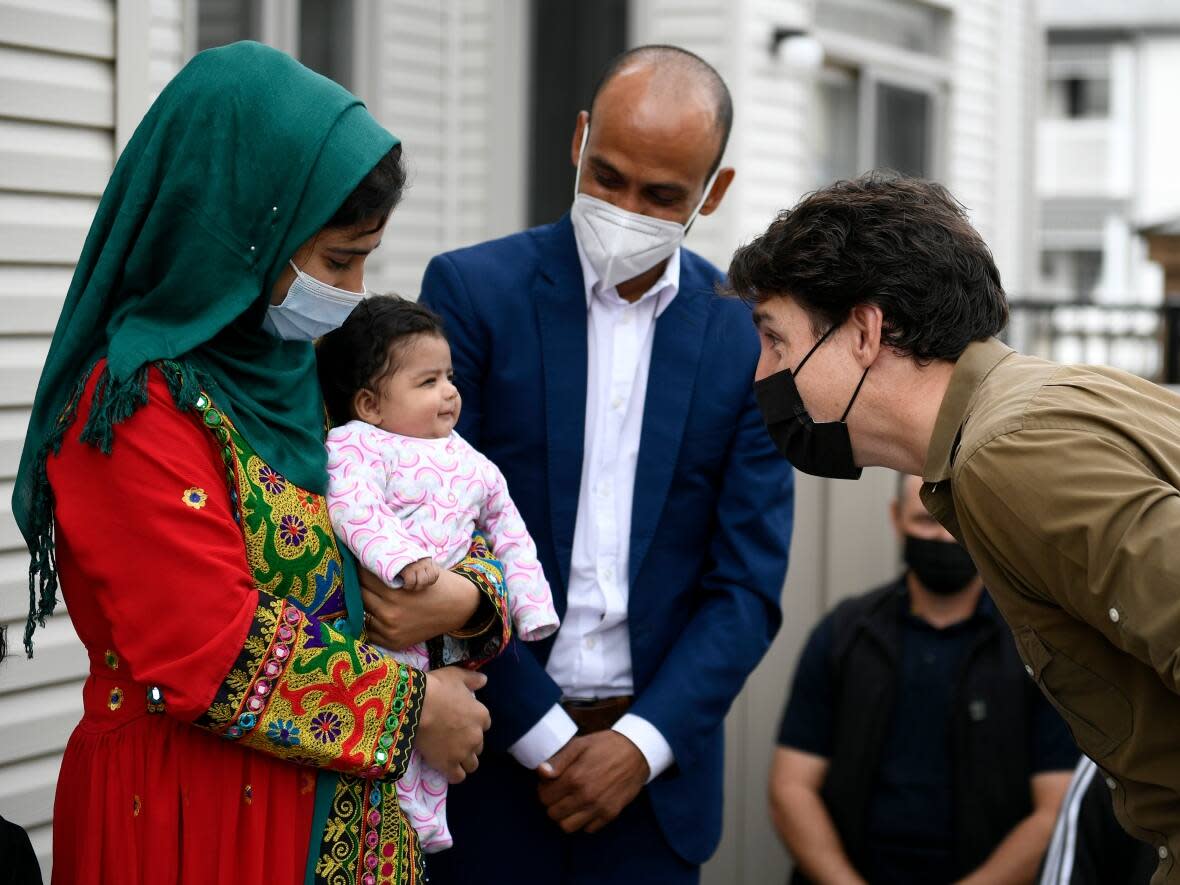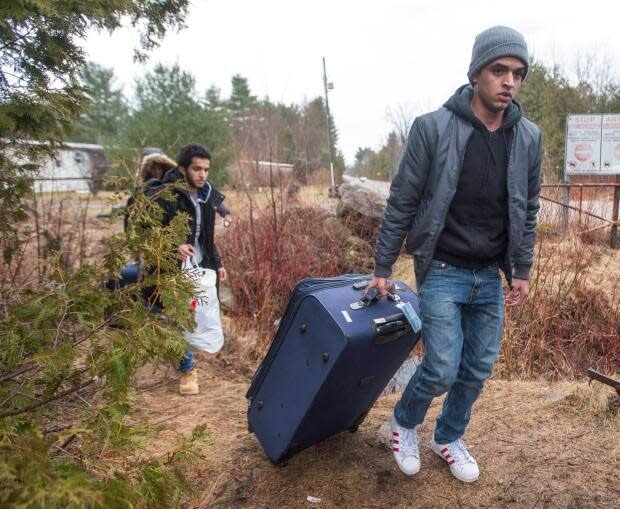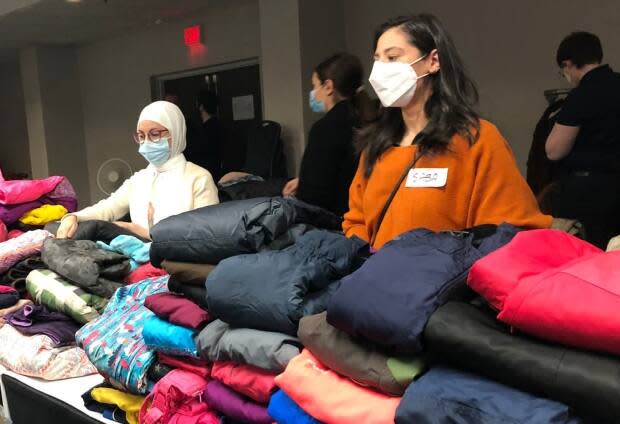Other newcomers forgotten as eyes remain on Ukraine, say advocates

Some advocates working with refugees and newcomers to Ottawa say people have largely forgotten those who fled various countries and are resettling in the region, as news headlines focus on helping Ukrainians fleeing war.
As of earlier this month, since February an estimated 3,200 Ukrainians have landed in the nation's capital as a network of settlement agencies and volunteer groups help them get accustomed to their new communities. Ottawans have also opened their homes to displaced families in search of a temporary place to stay.
"When we talk about refugees who are not Ukrainian, we are in no way minimizing what Ukrainians are going through," said Louisa Taylor, director of Refugee 613, an agency that helps newcomers get settled.
"There are people from, you know, Sudan, Yemen, Syria, all over the world who have experienced very similar things to what Ukrainians have. And they're sitting there waiting — waiting for someone to help them start their life over."
Taylor noted there are about 27 million refugees around the world according to UNHCR, yet about 100,000 get resettled each year. A majority of refugees are from Syria, Venezuela, Afghanistan, South Sudan and Myanmar, according to that data.
"That's a drop in the bucket," said Taylor.

Taylor said she's blown away by how generous people have been toward Ukrainians, but doesn't want the wider community to forget others who are resettling in the nation's capital and beyond.
"We're part of that effort and we're cheering it on. We're just saying, let's make a bigger table," she said, noting there are people who come from various countries and aren't a part of "high-profile programs" run by the government to fast-track immigration for certain groups.
"We just need Canadians to put up their hand and say, 'Yeah, I'd like to help these folks too.'"
Stories should carry 'equal weight'
Doreen Katto, a program co-ordinator with Matthew House Ottawa refugee services, said she noticed Canada's immigration department giving "special attention to some groups."
"We have seen it happen with Afghans, and again with Ukrainians," Katto wrote in an email to CBC.
As a result, Katto said many other refugee claimants have had longer wait times than usual with Immigration, Refugees and Citizenship Canada. One claimant has waited more than a year for their work permit, she said.
"During this time they are receiving social assistance handouts which are far from sufficient," said Katto. "I feel that every refugee or displaced person has a story, and all stories should carry equal weight."
Afghans still need help
Zahira Sarwar, director of Ottawa-based Afghan Canadian Support Network (ACSN), said as the war in Ukraine unfolded, she's noticed the number of Afghan families being brought to Canada and Ottawa has slowed down.
We're just noticing that there's a lot less attention on helping Afghans since the Ukraine crisis. - Zahira Sarwar, Afghan Canadian Support Network
As of earlier this month, Canada has fulfilled a third of its commitment to protect 40,000 Afghans who've fled the country since the fall of Kabul to Taliban forces last summer.
The number of donations for Afghans in Ottawa has also "drastically reduced," Sarwar said.
"Last fall, there were many people who would come forward either with physical donations or [employment] offers," she said.
"Those types of offers have pretty much stopped coming in. And so we're just noticing that there's a lot less attention on helping Afghans since the Ukraine crisis."

Sarwar said Afghan families have noticed the disparity in recent months.
For instance, families have noted that some teachers didn't take time to educate students about the Taliban's takeover of Afghanistan when their children joined the class, but have taken time to teach students about Russia's invasion of Ukraine in recent months.
"It rubs us the wrong way, but ... we know there's a little bit of underlying racism involved, which is also somewhat expected," she said.
Sarwar wants Ottawans to remember that it shouldn't matter where people are from.
"[Newcomers] have experienced something very tragic, and they need help. They need kindness. They need people to open up their hearts. We don't need prejudice," she said.
Donations, employment offers still needed
ACSN is still looking for volunteers to help out, as well as more donations — from clothing to used household items, gift cards to groceries.
Now that many families have moved into their own home, she's asking business owners who are able to offer employment to contact the group.
"We are in touch with families who are very fluent in English. A lot of them are professionals. They are lawyers, engineers ... doctors, some are business owners themselves. But they're looking for work," she said.
"Please get in touch with us. That can help the families."

